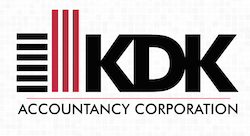A good credit score can help your business land contracts and get better terms from lenders and vendors. Learn the simple steps you can take to boost your business credit score.
If you’re seeking out suppliers, trying to score a contract with the U.S. government, or applying for a low-cost business loan, you’ve probably heard that your business credit score can have a big-time effect on your chances.
So how can you make sure that you look great in the eyes of creditors and those you do business with?
It’s common sense that making late payments (or not making payments at all) can seriously weigh on your scores, but there are also a number of proactive steps you can take to improve your business credit scores and boost your approval odds. Business owners who take charge of improving their credit may find that it actually takes less time to start seeing your business credit score go up than it would to see your personal score rise.
Here are four steps you can take to give your business credit score a boost.
1. Consistently Pay Bills on Time … or Early!
Yes, pay early. If you consistently pay your bills on time, in particular those that report your payment activity to business credit reporting agencies, you’ll build good business credit scores. But with some business credit scores, paying early can expedite the process of achieving a great score.
The D&B PAYDEX score, for example, is based entirely on when a business pays its bills. While a score of 80/100 indicates on-time payments, 100/100 indicates that a business has consistently paid before the due date.
When it comes to your bills with vendors and suppliers, paying early can be a win-win by boosting your scores andlowering your cost of goods sold. Ask your supplier if they offer any discounts for early payback—a common one is 2/10, where the customer gets a 2% discount if they pay within 10 days of receiving the invoice.
2. Open Trade Accounts or a Line of Credit with a Vendor or Supplier
Making on-time payments in the name of your business won’t have an effect on your business credit score if the payments you’re making aren’t being reported to business credit reporting agencies or a database like the Small Business Financial Exchange.
To establish a credit history for your business, you’ll need accounts that report. A line of credit with a vendor or supplier is great place to start. If you can establish a positive payment history with a handful of suppliers that report, you’ll see your score start to rise. Nav’s tool, Business Launcher, can help you find companies that report. It’s free with a Nav account.
Already have trade accounts? Make sure the vendors you are working with report; unlike with personal credit, many don’t report to business credit agencies. There are a number of major suppliers that do report (like Staples, Home Depot, or UPS) where you can establish a trade account and use it to make purchases for your business.
To read more about this article click here: http://bit.ly/2f9LJ04





